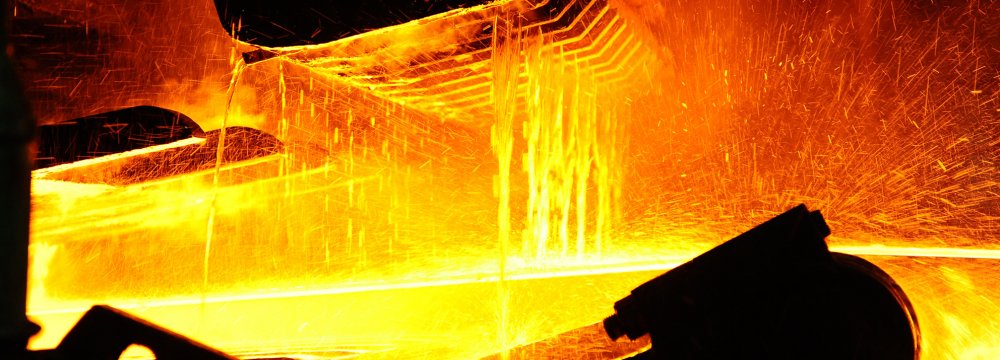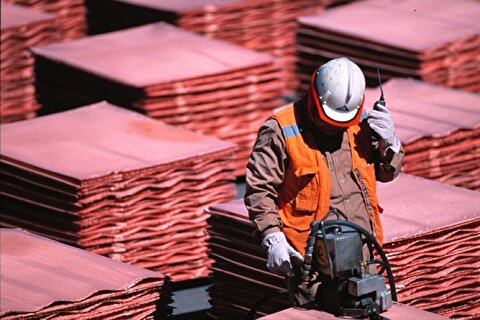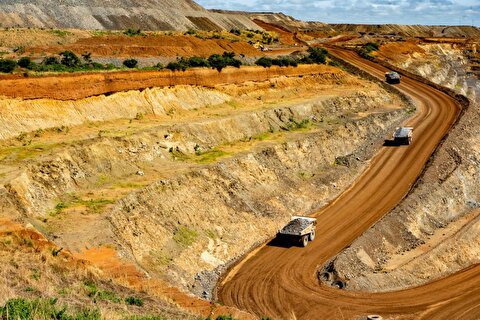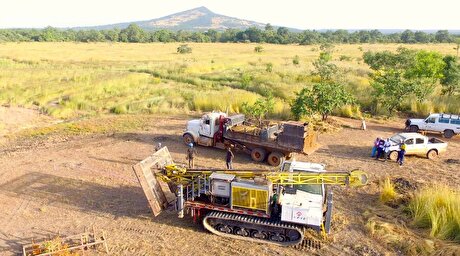
Iran Steel Output Tops 13m Tons

The report shows Iran’s crude steel output in August stood at 1.7 million tons, indicating a 15.1% rise compared to last year’s corresponding month.
Similar to July, this is the second fastest growth among all producers of more than 1 million tons per month, after France with 15.5% growth in August. Considering all producers regardless of output, Iran is ranked 13th in term of fastest growth.
Iran produced 11.68 million tons of direct-reduced iron during the eight months, up 11.2% year-on-year, to remain the world’s largest producer of DRI. The August output was up 6.31% to 1.43 million tons.
DRI, also called sponge iron, is produced from the direct reduction of iron ore to iron by a reducing gas made from natural gas or coal. It is most commonly made into steel using electric arc furnaces. About 70-75% of Iranian mills use EAFs.
The world’s 67 steelmakers produced 1.21 billion tons of crude steel during the eight months, up 4.9% YOY.
Global crude steel output stood at 143.58 million tons in August, indicating a 6.3% increase YOY.
WSA members account for approximately 85% of the world's steel production, including over 160 steel producers with nine of the 10 largest steel companies, national and regional steel industry associations, and steel research institutes.
Global producers seem intent on boosting production, as most steelmakers recorded a higher output in August compared to July.
The crude steel capacity utilization ratio of the 67 countries in August 2017 was 7.2%. This is 3.3% higher than August 2016. Compared to July 2017, it is 0.2% points lower.
China’s steel production hit 74.59 million tons in August, registering an 8.7% increase YOY. The giant steelmaker has been growing in output every month and has now topped its July growth by 3.6% points.
Brazil, the United States, Germany, France, South Korea, Taiwan and Turkey also recorded upticks in their steel production.
China remained the world’s largest producer in the eight-month period with 566.4 million tons of steel output. It was followed by Japan with 69.64 million tons, India with 66.45 million tons, the United States with 54.7 million tons, South Korea with 47.01 million tons, Russia with 46.52 million tons, Germany with 29.36 million tons, Turkey with 24.74 million tons, Brazil with 22.5 million tons, Italy with 15.58 million tons, Taiwan with 15.51 million tons and Ukraine with 14.11 million tons.
Iran remained the world’s 14th largest steelmaker and was placed between Mexico (13th) with an 13.5 million ton output and France (15th) with 10.4 million tons.
Iran’s crude steel output stood at 17.89 million tons in 2016, according to WSA. The country aims to become the world’s sixth largest steel producer as per the 20-Year Vision Plan, which targets an annual production of 55 million tons of crude steel and 20-25 million tons of exports per year by 2025. Iranian steel mills have so far realized more than 60% of the capacity target.
One of the main challenges to the target’s realization is the lack of balance in Iran’s steel production chain. The country will require 168 million tons of iron ore, 86 million tons of concentrate, 87 million tons of pellet and 57 million tons of DRI by 2025. Shortages of all the materials still loom large.
As data by Iron & Steel Society of Iran show, there is at least an imbalance of 2-3 million tons between the nominal capacities of different links of steel production chain and an even greater disparity in output.
The steel industry might be sprinting to the 55-million-ton target, but it will need to bring different sectors up to speed before it can materialize its goal.


Newmont nets $100M payment related Akyem mine sale

First Quantum scores $1B streaming deal with Royal Gold

Caterpillar sees US tariff hit of up to $1.5 billion this year

Copper price collapses by 20% as US excludes refined metal from tariffs

Gold price rebounds nearly 2% on US payrolls data

St Augustine PFS confirms ‘world-class’ potential of Kingking project with $4.2B value

B2Gold gets Mali nod to start underground mining at Fekola

Copper price posts second weekly drop after Trump’s tariff surprise

Goldman told clients to go long copper a day before price plunge

NextSource soars on Mitsubishi Chemical offtake deal

Copper price slips as unwinding of tariff trade boosts LME stockpiles

SAIL Bhilai Steel relies on Danieli proprietary technology to expand plate mill portfolio to higher steel grades

Alba Discloses its Financial Results for the Second Quarter and H1 of 2025

Australia weighs price floor for critical minerals, boosting rare earth miners

Australia pledges $87M to rescue Trafigura’s Nyrstar smelters in critical minerals push

Fresnillo lifts gold forecast on strong first-half surge

Why did copper escape US tariffs when aluminum did not?

Fortuna rises on improved resource estimate for Senegal gold project

Caterpillar sees US tariff hit of up to $1.5 billion this year

NextSource soars on Mitsubishi Chemical offtake deal

Copper price slips as unwinding of tariff trade boosts LME stockpiles

SAIL Bhilai Steel relies on Danieli proprietary technology to expand plate mill portfolio to higher steel grades

Alba Discloses its Financial Results for the Second Quarter and H1 of 2025

Australia weighs price floor for critical minerals, boosting rare earth miners

Australia pledges $87M to rescue Trafigura’s Nyrstar smelters in critical minerals push

Fresnillo lifts gold forecast on strong first-half surge

Why did copper escape US tariffs when aluminum did not?

Fortuna rises on improved resource estimate for Senegal gold project














